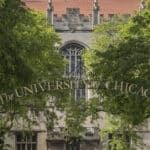The world must abolish nuclear weapons
By Marat Tazhin | September 23, 2009
At the June 18 ceremony to commemorate the 20th anniversary of the last nuclear test at Semipalatinsk, the site of hundreds of Soviet-era nuclear tests, Kazakh President Nursultan Nazarbayev proposed that August 29–the day of the very first nuclear explosion at the site–should be declared by the United Nations as the “World Day of Renouncing Weapons of Mass Destruction.”
The new Kazakh initiative is inspired by aspirations (shared by many across the political spectrum) to create a world free of nuclear weapons. It also is inspired by concern that the long-standing dream of nuclear disarmament has suffered serious setbacks in recent years. Despite heartening news, such as the April speech of U.S. President Barack Obama in Prague and positive negotiations related to a START follow-on treaty, much work remains before real progress toward disarmament and nonproliferation is at hand. Regrettably, the international community hasn’t been able to achieve such progress because of a lack of consensus, political will, and the ineffectiveness of the Nuclear Non-Proliferation Treaty (NPT).
To this day, the treaty has been unsuccessful in stopping nuclear proliferation and has allowed the creation of new de facto nuclear states (e.g., India, Israel, Pakistan, and North Korea). The disparity that is at the essence of the NPT creates destructive sentiments and the belief that the treaty is unfair to certain regions of the world. States that aren’t a part of the so-called nuclear club (again, countries such as India and North Korea) strive to create their own nuclear arsenals, believing that these weapons will provide them with security and help them realize their foreign policy objectives. For this reason, the treaty hasn’t created a more secure world.
Our country has the moral authority to propose such a sweeping initiative because our people have experienced the horrors of nuclear weapons. Between 1949 and 1989, 456 nuclear explosions were detonated at Semipalatinsk. Not only did these tests bring pain and suffering to hundreds of thousands of our citizens, but also they contaminated a massive expanse of Kazakh territory.
In addition, our nation is serious about disarmament. We had the largest nuclear test site in the world and the fourth largest nuclear arsenal, both of which we gave up voluntarily in 1991 and 1995, respectively. When we shut down Semipalatinsk and shipped the weapons back to Russia (after the Soviet Union broke up) we led the world by example, showing other countries that true national security isn’t a matter of possessing a large number of nuclear missiles, but having peaceful foreign policy, internal stability, and steady economic and political development.
Kazakhstan also is a member of the Central Asian nuclear-weapon-free zone, which entered into force in March. The zone is a substantive contribution to attaining the NPT’s goals as it both renounces nuclear weapons and bolsters regional and international security. Similarly, Kazakhstan is an active participant in the Global Initiative to Combat Nuclear Terrorism, which was formed by the leaders of Russia and the United States in 2006. A year earlier, we joined the Proliferation Security Initiative, which aims to end the trafficking of weapons of mass destruction. And in 2004, we signed the International Atomic Energy Agency’s (IAEA) Additional Protocol. As a result, the country’s entire nuclear infrastructure is certified by the IAEA and Kazakhstan’s nuclear energy program is managed in accordance with IAEA rules and standards.
In recognizing the profound nature of the problems inherent in the NPT, President Nazarbayev gave a speech to the U.N. General Assembly in 2007 during which he called upon nuclear-armed nations to disarm, take the necessary measures to make the NPT an effective agreement, and do everything in their power to stop the proliferation of nuclear weapons. It’s essential that mechanisms be put in place to prevent nations from leaving the NPT without penalty (e.g., North Korea), and provide leverage over non-NPT signatory states with nuclear weapons (e.g., India). NPT signatory states must fulfill their obligations according to the framework of the treaty, supporting nonproliferation, disarmament, and the peaceful use of nuclear technology.
The goal of creating a new universal treaty that bans the vertical and horizontal proliferation of nuclear weapons isn’t to annul the current obligations set forth in the NPT, nor is it to replace the treaty. Instead, we hope it will strengthen the NPT, establishing its effectiveness as a binding contract and getting beyond its intrinsic asymmetry. We understand that such an undertaking won’t be accomplished easily. Thus, we are open to sensible and constructive dialogue with anyone who is interested in strengthening the nonproliferation regime.
Twenty years ago, Semipalatinsk witnessed its last nuclear test, and Kazakhstan began dismantling its inherited Soviet nuclear arsenal. We closed the test site to specifically reduce the danger Kazakhstan’s nuclear weapons posed to the world. Our country’s success in voluntarily disarming is still unprecedented and on April 24, the U.N. General Assembly adopted a resolution to commemorate in 2011 the 20th anniversary of the closing of Semipalatinsk. We also sincerely hope that the United Nations designates August 29 as the “World Day of Renouncing Weapons of Mass Destruction,” to encourage people around the globe to work together to abolish nuclear weapons.
Together, we make the world safer.
The Bulletin elevates expert voices above the noise. But as an independent nonprofit organization, our operations depend on the support of readers like you. Help us continue to deliver quality journalism that holds leaders accountable. Your support of our work at any level is important. In return, we promise our coverage will be understandable, influential, vigilant, solution-oriented, and fair-minded. Together we can make a difference.
Topics: Nuclear Energy, Opinion















